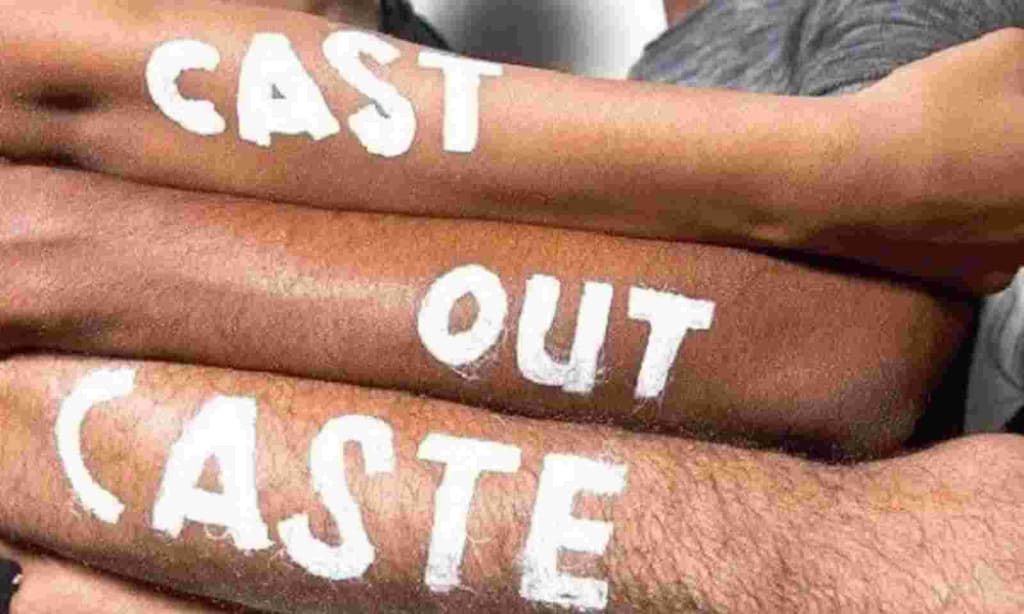IS DR.AMBEDKAR DALIT?
POLITICS OF DR.AMBEDKAR

B.R. Ambedkar, popularly known as Babasaheb Ambedkar, was one of the most influential political leaders in India's history. He was born in 1891 in a low-caste family and faced discrimination and prejudice throughout his life. He dedicated his life to fighting for the rights of the oppressed and marginalized communities in India, including Dalits (formerly known as untouchables), women, and minorities.
Ambedkar's political philosophy was based on the principles of social justice, equality, and democracy. He believed that every individual, regardless of their caste, religion, or gender, should have equal opportunities and rights in society. He argued that the caste system was the root cause of social inequality and discrimination in India and that it should be abolished.
Ambedkar's political activism started with his involvement in the Indian National Congress, where he fought for the rights of the Dalits. However, he soon realized that the Congress was not committed to the cause of social justice and equality. He, therefore, formed his political party, the Scheduled Castes Federation, in 1942, to represent the interests of the Dalits.
Ambedkar played a crucial role in drafting India's Constitution, which enshrined the principles of democracy, equality, and social justice. He also fought for the inclusion of special provisions for the Dalits, such as reservation of seats in educational institutions and government jobs. He believed that these measures were necessary to address the historical disadvantages that the Dalits had faced.
Ambedkar's political legacy is still felt in India today. His advocacy for social justice and equality inspired the Dalit and other marginalized communities to fight for their rights. The Indian government has implemented several of Ambedkar's recommendations, including the reservation policy, which has helped improve the socio-economic status of the Dalits.
However, despite Ambedkar's contributions, caste-based discrimination and violence still exist in India. The political establishment in India has been criticized for not doing enough to address these issues. Many Dalit activists argue that the government has failed to implement Ambedkar's vision of a truly equal and just society.
Dr. B.R. Ambedkar was a prominent political figure in India and a strong advocate for the rights of the marginalized and disadvantaged communities. Here are some key political positions held by Ambedkar:
Chairman of the Drafting Committee of the Indian Constitution: Ambedkar was appointed as the chairman of the Drafting Committee of the Constituent Assembly in 1947, which was responsible for drafting the Indian Constitution. He played a significant role in shaping the constitution and ensuring the inclusion of provisions that safeguarded the rights of the marginalized communities.
- Member of the Viceroy's Executive Council: In 1942, Ambedkar was appointed as a member of the Viceroy's Executive Council, the highest governing body in British India.
- Founder of the Scheduled Castes Federation: In 1942, Ambedkar founded the Scheduled Castes Federation, which was aimed at safeguarding the political rights of the Dalit community.
- Member of the Governor-General's Cabinet: After India gained independence from British rule in 1947, Ambedkar was appointed as the Minister of Law in the Governor-General's cabinet.
- Founder of the Republican Party of India: In 1956, Ambedkar founded the Republican Party of India, a political party that focused on advocating for the rights of the Dalit community.
- Advocate for separate electorates: Ambedkar was a strong advocate for separate electorates for the Dalit community, which was eventually granted under the Government of India Act of 1935.
Overall, Ambedkar was a strong political figure who worked tirelessly to ensure that the rights of the marginalized communities were safeguarded and protected through constitutional provisions and political representation
In conclusion, Ambedkar's politics was centered around the principles of social justice, equality, and democracy. His contributions to India's Constitution and his advocacy for the rights of the marginalized communities have had a significant impact on Indian society. However, much more needs to be done to address the issues of caste-based discrimination and violence and to realize Ambedkar's vision of a truly just and equal society.





Comments
There are no comments for this story
Be the first to respond and start the conversation.